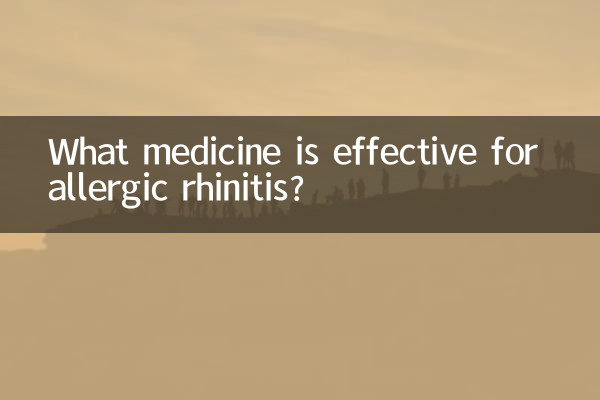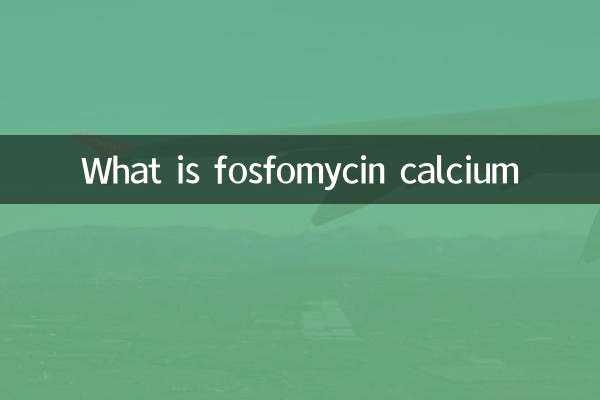What medicine is effective for allergic rhinitis?
Allergic rhinitis is a common nasal disease, mainly characterized by symptoms such as nasal itching, sneezing, runny nose, and nasal congestion. In recent years, with environmental pollution and changes in lifestyle, the incidence of allergic rhinitis has increased year by year. In order to help patients better choose drugs, this article combines the hot topics and hot content on the Internet in the past 10 days to sort out the commonly used drugs for allergic rhinitis and their effects.
1. Common symptoms of allergic rhinitis

The main symptoms of allergic rhinitis include:
2. Commonly used drugs for allergic rhinitis
The following is the classification of commonly used drugs for allergic rhinitis and their effects:
| drug type | Representative medicine | Mechanism of action | Effect evaluation |
|---|---|---|---|
| antihistamines | Loratadine, Cetirizine | Blocks histamine receptors and reduces allergic reactions | Quickly relieve symptoms, suitable for mild to moderate patients |
| Nasal corticosteroids | budesonide, fluticasone | Inhibit inflammatory response and reduce swelling of nasal mucosa | Long-term use has significant effects and is suitable for moderate to severe patients |
| leukotriene receptor antagonist | Montelukast | Blocks leukotriene receptors and reduces inflammation | It has a better effect on nasal congestion and is often used in combination with other drugs. |
| Decongestant | pseudoephedrine | Shrink nasal mucosal blood vessels and relieve nasal congestion | Effective for short-term use, but may rebound after long-term use |
3. How to choose the appropriate drug?
Depending on the severity of symptoms and individual differences, patients with allergic rhinitis can choose the following medication options:
4. Hot topics on the Internet in the past 10 days: prevention and treatment of allergic rhinitis
Recently, the prevention and treatment of allergic rhinitis has become a hot topic. The following are the key points that netizens pay attention to:
| topic | focus | Discussion popularity |
|---|---|---|
| seasonal allergic rhinitis | How to deal with pollen allergies in spring | high |
| drug side effects | Are nasal corticosteroids safe? | middle |
| Traditional Chinese Medicine Treatment | The effect of traditional Chinese medicine in treating allergic rhinitis | middle |
| Immunotherapy | Applicable groups for desensitization treatment | high |
5. Daily care suggestions for allergic rhinitis
In addition to medication, daily care can also effectively reduce symptoms:
Summarize
The drug treatment for allergic rhinitis needs to be selected based on the severity of symptoms and individual differences. Antihistamines and nasal corticosteroids are the mainstream options, while decongestants and leukotriene receptor antagonists may be used as adjunctive treatments. At the same time, symptoms can be better controlled by combining daily care and preventive measures. If symptoms persist or worsen, it is recommended to seek medical treatment promptly.

check the details

check the details